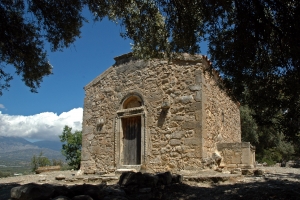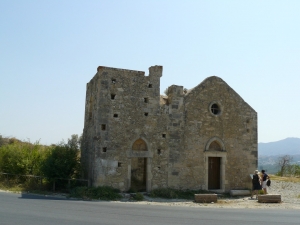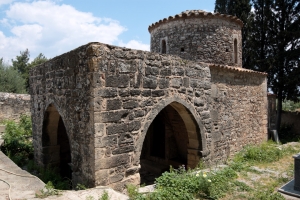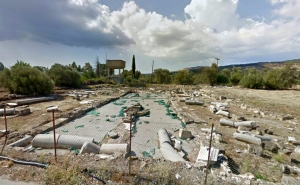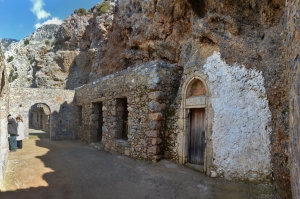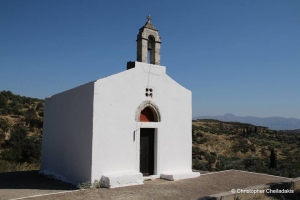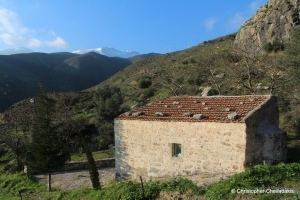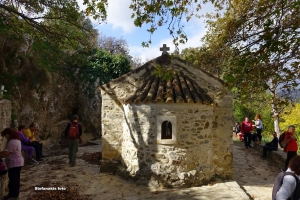The church of Agios Georgios by the village Agia Triada dates back to the Byzantine era and bears frescoes dating back from the 13th to 14th century.
The church of St. George at F(a)landra position is located near Phaistos and was the temple of a small monastery. Next to the church are preserved tombs of the Venetian Era (1581).
The Baptistery of St. Paul is located at the entrance of the village Agios Ioannis (St John), near Phaestus. According to tradition, when the Apostle Paul came to Crete and headed to the capital of the island (Gortyn) passed from the point where he taught Christianity for two days.
>
The ruins of the Great Basilica (6th century AD) of Gortys are located 200m south of the main archaeological site, before arriving at Mitropolis village. The five-aisled temple, discovered accidentally in 1978, was the largest church in Crete. The temple was dedicated to St. Titus, but after its destruction by an earthquake (670AD), it was moved to the temple inside the current archaeological site.
On the eastern side of the gorge of Rouvas, high above the monastery of Saint Nicholas, we meet the location of Kalives, where the Saints Euthymius and Nikolaos Kourtaliotis lived in the 17th century (around 1670). For some researchers, these are the same person. Inside the cavernous church there are some frescoes and there is a rock-carving with the number 1432, but it is not probably a date, as dates in that era were written with Greek symbols.
South of Ano Moulia, at a rural location full of olive trees, there is the church of Saint Theodore the Sanctified. Saint Theodore the Sanctified celebrates on 16 May. This is an extremely rare Saint and this church is the only one in Crete honored in his name. Throughout the Greek area there is a second temple in Ithaca.
Just outside the charming village Panassos we meet the chapel of St. John Rigologos. St. John is accessed via a rough dirt road crossing a region with ancient olive trees and strange rocks formations full of ancient carvings. The area hosts the remains of a Minoan farmhouse and ancient stone quarries.
The church of Saint Andrew (Agios Andreas) is located in a lush green area with plane trees near the village Vourvoulitis. Next to the church there is the small cave Kalegerospilios from which gushes water and is collected to a cistern, while the roof of the cave preserves traces of a fresco of Lord Christ.











